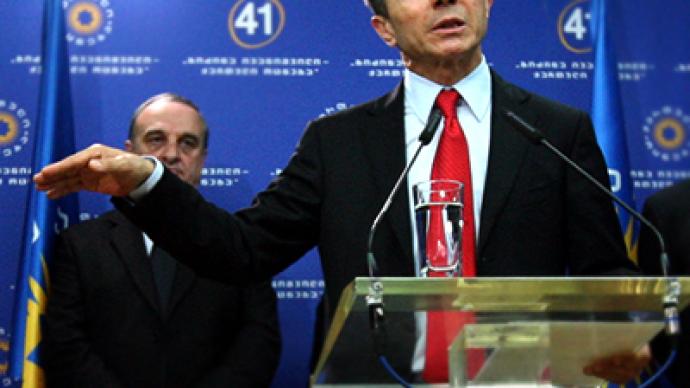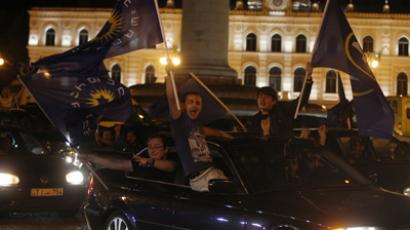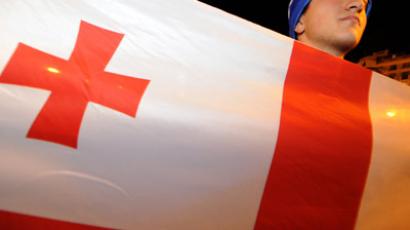Saakashvili provoked war with South Ossetia - Georgian nominee for PM

A leader of Georgia’s ruling Georgian Dream party, which won recent parliamentary elections, has accused President Mikhail Saakashvili of provoking a war with South Ossetia in August 2008.
“This huge provocation was planned by you and your military chiefs,” claimed Bidzina Ivanishvili, addressing members of former ruling party United National Movement, led by Saakashvili. “Americans and Europeans think the same. This wouldn’t have happened if we had a normal government,” he added.
Ivanishvili also slammed Saakashili’s actions, which he said, allowed Russia to complete its long-standing dream of “getting over the Caucasus Ridge.” “And in reality now we have our own occupied territories,” he added.
The republics of South Ossetia and Abkhazia declared independence from Georgia in 1991, after the dissolution of the Soviet Union. However, Tbilisi was reluctant to recognize them as separate states. Russia and several other countries recognized both as independent after the war in August 2008, while Tbilisi began referring to the Caucasian republics as “occupied territories.”
The Georgian designate for prime minister – he will be appointed on Thursday – expressed hopes that Georgian-Russian relations will improve in the nearest future, but said that there is “no concrete” plan yet for doing so.“We don’t have a concrete plan of when things will sort themselves out, but we with our correct actions and diplomacy will be able to set things going and get our territories back, if our interests coincide with Russia’s,” Ivanishvili said.Relations between the neighbors worsened after a five-day military conflict in August 2008, when Tbilisi began shelling South Ossetia, violating a ceasefire in place there. Russia then intervened under the CIS peacekeeping agreement. In response Georgia launched a military offensive against Russian peacekeepers and civilians in Tskhinval, the capital of South Ossetia. After the conflict, Russia and several other nations recognized South Ossetia and Abkhazia as independent states. In response to Moscow’s decision, Tbilisi broke off diplomatic relations with Russia and claimed both Caucasian Republics“occupied territories.”The attack launched by Georgia claimed the lives of about 1,500 people, South Ossetian officials said back then. Russia’s investigative committee confirmed the deaths of more than 200 people, 162 civilians and 48 Russian soldiers, including 10 peacekeepers.“Normalizing relations with neighbors, including Russia" was one of the main priorities billionaire Ivanishvili voiced in his parliamentary election campaign in October. On the eve on the parliamentary elections in Georgia, Moscow said it “would only welcome such developments.” In order to take part in Georgian political life, Ivanishvili had to give up his Russian citizenship and sell his assets in Russia. But that never stopped the accusations that he was a "Russian agent," which resulted in him losing his Georgian citizenship. In mid-October president Saakashvili reinstated his citizenship after Ivanishvili's party won the election.














